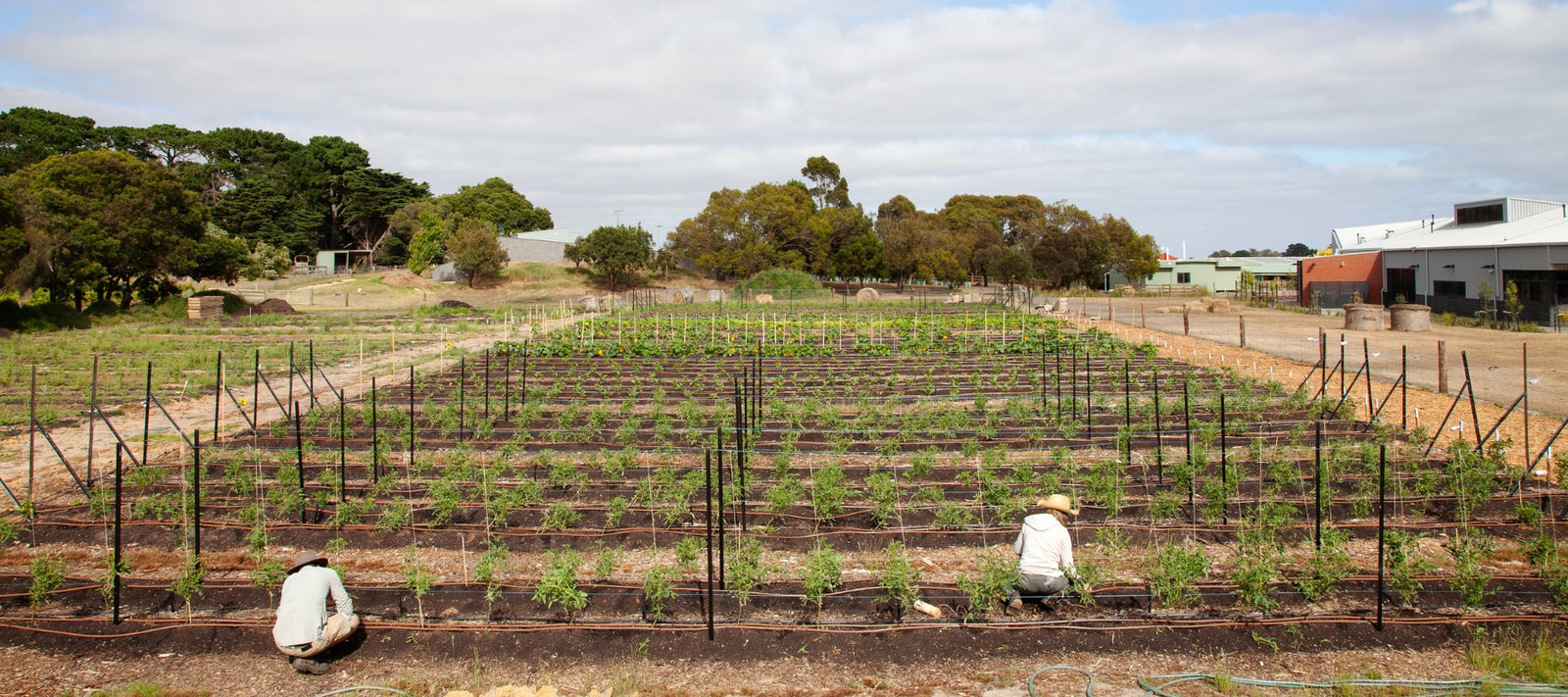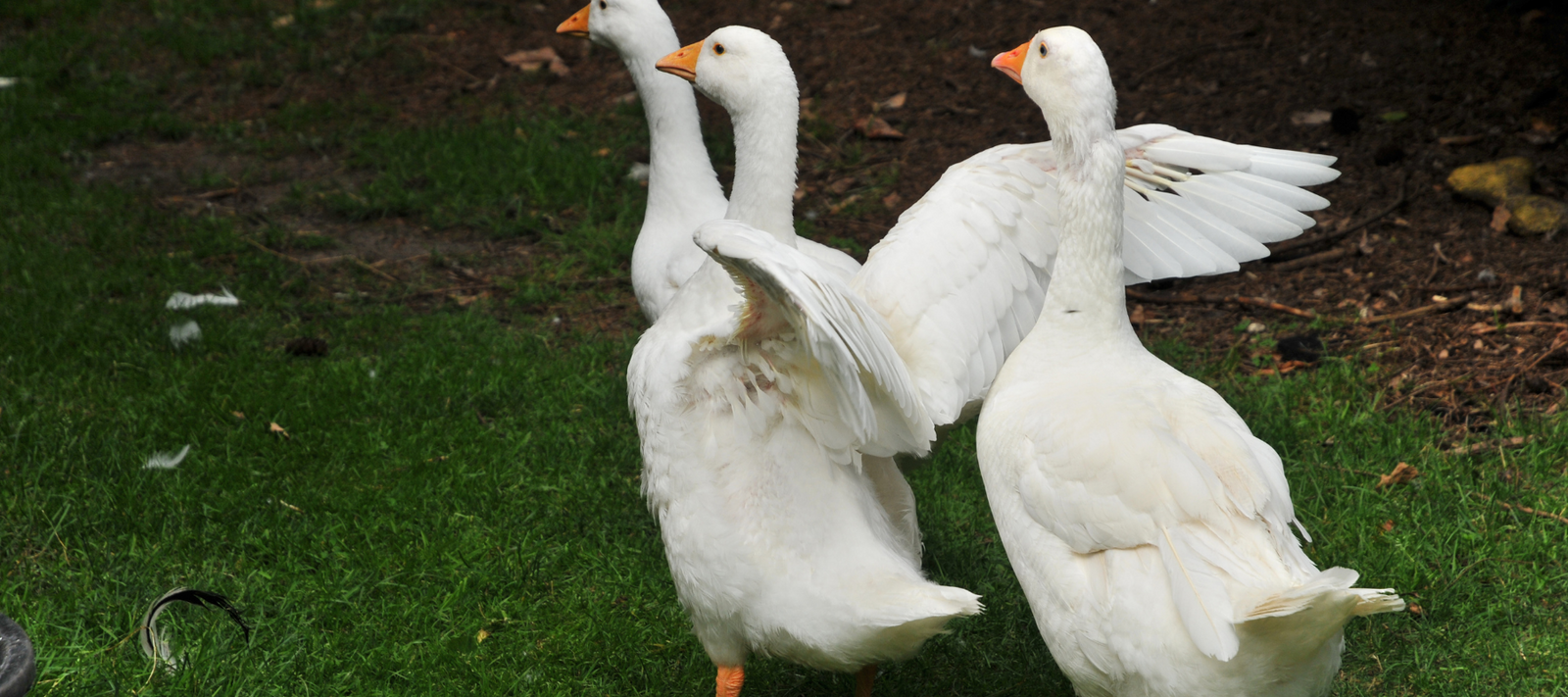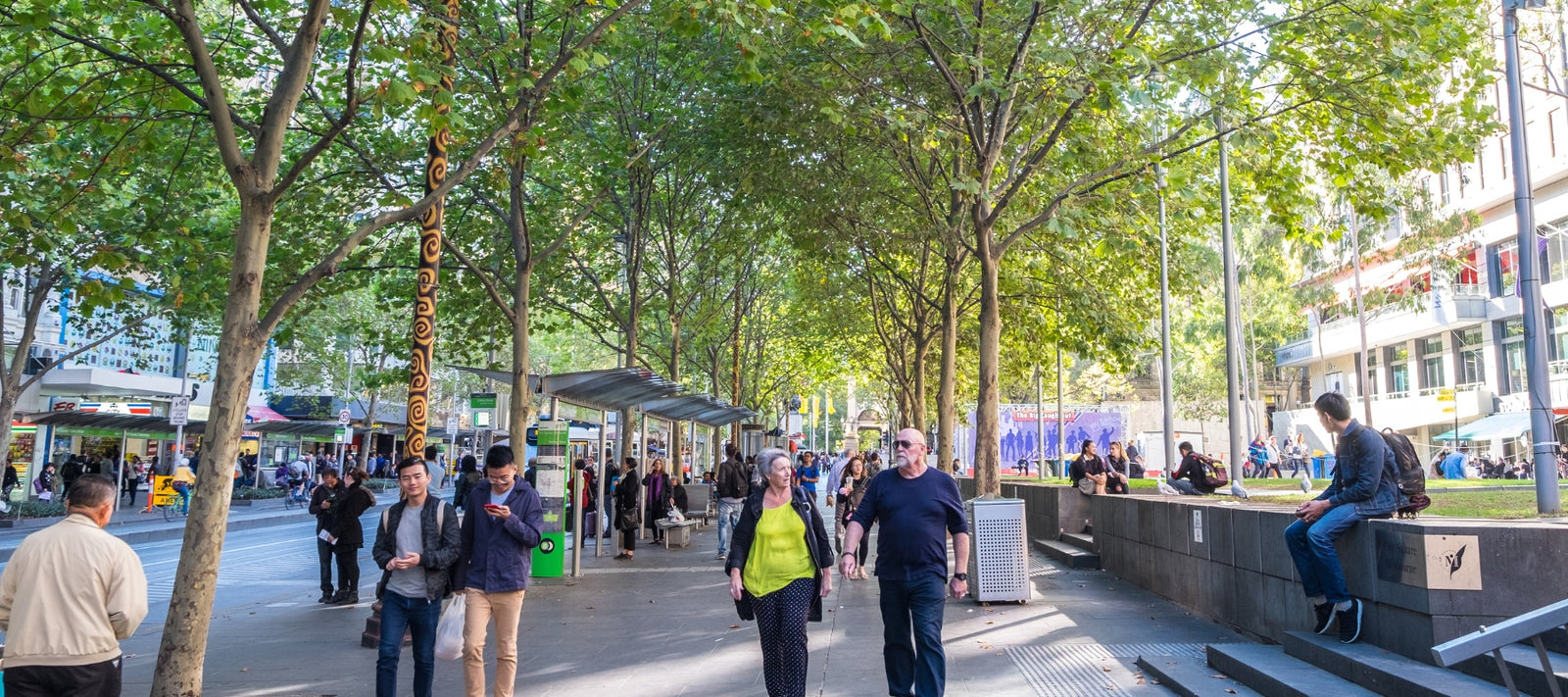
Farm My School was born from our journey in the food industry – we were both frustrated by the absence and accessibility to local, fresh, nutritious and healthy food in the Geelong region. The idea to build a farm within a school made perfect sense – the kids are our future and the ones that will bear the brunt of climate change. We also identified the challenges that young farmers are facing; access to land, poor wages, climate change and limited educational opportunities to farm regeneratively. In essence we wanted a farm at the heart of a community, to be nurtured, celebrated and loved by its residents. A farm that sparked a movement and inspired other communities to do the same.
We first germinated the idea for the Farm My School program in 2018. Our combined experience in permaculture, education and supporting community resilience was the driving force behind the initiative.
As fathers of young children, we were seeking a future-focused solution for climate mitigation and looked to schools as having land access that could be turned to local food production using regenerative practices. We saw the opportunity to integrate a program with school curricula and engage students in food growing preparation and waste minimisation practices.
From pitch to paddock to plate
Farm My School is a not-for-profit association, working to transform unused land within schools into regenerative market gardens providing food to the local community. It emphasises partnerships between teachers, students, farmers and community organisations to community food hubs for learning, sharing and connecting.
We are proud to have partnered with Bellarine Community Health and Bellarine Secondary College (BSC) to establish the pilot farm. Through the support of the Victorian Government DFFH Engage! grant and partners such as The Diggers Foundation, our activities include:
-
Transformation of urban spaces into regenerative farms in schools with functional education, food processing and distribution hubs to produce large quantities of fruit and vegetables.
-
Integration of regenerative farming, food preparation and business management into the school curriculum, with additional extracurricular and leadership opportunities.
-
Development of tertiary regenerative agricultural/horticultural vocational curriculum and pathways, including a regenerative farming incubation program.
-
Generation of ongoing employment opportunities for small-scale regenerative farmers across the community.
-
Making affordable organic vegetables available to low-income families, with a family food literacy program that helps to build confidence to make tasty, healthy meals using farm-grown produce.
-
Establishment of complementary revenue pathways to sustain the school farms, including value-added produce, market stalls and tours.
-
Mobilisation of a ‘volunteer army’ who are supported to gain skills in regenerative farming.
Next steps
With BSC already producing over 100kg of produce a week, the next stage of this pilot will focus on setting up a system to prepare and distribute the fresh produce. The establishment of the Community Fruit and Vegetable Distribution Hub will be well tested at BSC before being replicated at other schools. The hub will support young people and their families by:
-
Ensuring healthy food is affordable and accessible.
-
Increasing hands-on learning opportunities for students.
-
Having a positive, healthy influence on food choices made by students and their families.
-
Increasing student and parent skills and knowledge to use the fresh produce.
-
Increasing the school community’s knowledge of mainstream food systems and their impact on sustainability and climate change.
The hub will also feed the school community through a vegie box program, the school canteen and the college food tech. Any surplus will go to local markets. We aim to have complementary programs including:
Farmer Incubator Program – development of tertiary agricultural/horticultural vocational pathways by providing at-risk and disengaged youth with opportunities to complete farming internships. The program will involve developing, certifying and delivering Vocational Education Training (VET) via a regenerative farming subject and offering two internships annually.
Family Food Literacy Program – aiming to change the culture of what households are eating, especially in low socio-economic communities and households that are financially stretched. Increasing engagement and ensuring accessibility for all is key. Education through a number of mechanisms will be the crux of the program to ensure food literacy of the community evolves.
The Farm My School pilot program in the Geelong region is proving a resounding success and we look forward to expanding into more schools.
Written by Ben Shaw and James McLennan, founders of Farm My School.
Follow the Farm My School progress – @farm.my.school
Photo by Luke Adams.






